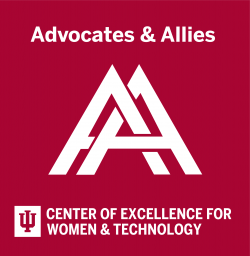Since the start of the COVID-19 pandemic, the specter of isolation and suffering has caused mental health to worsen for many people around the world. A particularly concerning outcome of this rise in mental health issues is that of addiction or addictive behaviors,1 which is exacerbated during our upcoming season. We explore the relationship of addiction with systems of oppression, substance use/addiction in higher education, and offer ways to include people who are in recovery or are sober to combat these negative narratives.

Reflect: What are our societal perspectives of addiction?
Who do you see when you think of the word “addiction”? Who gets positively represented in addiction media and who gets negatively represented? Before jumping into discussion about addiction in higher education, it’s important to point out how addiction narratives have erased and/or harmed marginalized communities. Women were absent in addiction research until the 1990s,3 leading to significant misunderstanding about gender differences in addiction patterns that are connected to women’s social experiences.4 People of Color (especially Black people) have been disproportionately demonized and punished for substance use,5, 6 as policy has been/continues to be structured by systemic racism. Because experiences with oppression correlate heavily with addiction risk, those at the intersections of systemic oppressions (such as Women of Color) are most harmed by erasure/stigma.7, 8
Learn: Addiction and Higher Education
Much research has examined how addiction affects college students, who are consistently entrenched in a very drinking-/drug-taking-heavy environment during college.9 Following the general college-going population in recent years, there have been significant increases in harmful substance use in young adult women (5.3 million of whom struggled with alcohol).10 In this increase, students have begun to non-medically use prescription stimulants to cope with increasing academic stress.11 Heavy use/addiction can have negative physical, emotional, mental, and academic consequences for college students.12, 13 Substance use and addiction is less understood in faculty and staff. Where students have increasingly addressed the stress of college by taking stimulants, stressful work environments have contributed to an increase in harmful alcohol use amongst faculty.14 Disclosure of addiction among faculty members, however, is exceedingly rare.15 The pressures of appearing sociable in professional settings (like conference happy hours) and reputable on the career path (especially on the tenure track) make navigating academia while in recovery incredibly difficult.16, 17 Both students and faculty in recovery use a variety of strategies in substance-related contexts to avoid negative social consequences (such as making jokes),18, 19 often only disclosing recovery if perceived costs are insignificant.20
Change:
- Challenge negative narratives: A double-edged stigma revolves around substance use. The prevalence of substance use culture often leads to negative perceptions of those who do not participate, such as being called a “killjoy.”21 Alternatively, addiction is often cast as a highly individual and moral problem, rather than an illness or condition, at significantly larger rates than other mental conditions.22 Other manifestations of this stigma include microaggressions like “Oh, I’m such a crackhead!” that connect “bad” behaviors to substance use. If you hear someone spreading this language, get them to think about the implications. How are they dehumanizing people who use substances and/or marginalizing those who choose not to?
- Transform the culture: One of the most important steps to creating an environment that supports people who are currently dealing with or are in recovery from addiction is to role model and support vulnerability in those around you. In a vulnerable and inclusive culture, people may be more likely to disclose addiction/recovery, leading to decreased self-stigma23 and increased wellness.24 To learn more, we strongly encourage you to read/listen to the stories of those who have dealt with addiction while being a part of higher education, as they can share insights into what those in recovery/active addiction need while deconstructing stereotypes.
- Switch up your social/professional outings: Think about the kinds of social events you’ve attended/hosted. Was it structured around some kind of substance that could potentially be addictive, like alcohol? Though events like happy hours might seem like an easy way to get people connected, the emphasis on substance use in these settings can be isolating and potentially triggering for someone who chooses not to participate. Reimagine ways to connect that don’t revolve around alcohol, such as a luncheon. If you decide to feature alcohol, make it clear that deciding not to partake, for any reason, won’t affect one's standing in the group.
Additional Resource Recommendations
- Book: Never Enough: The Neuroscience and Experience of Addiction – Dr. Judith Grisel reviews addiction science and her journey from addiction to becoming a researcher.
- Video: Hiding in Plain Sight – College Students in Recovery – Nico Doorn discusses his experiences with recovery as a college student and what this population needs.
- Article: The Pressure of Academia Drove Me to Heroin – An anonymous academic shares their immense strain that led them to use and the responses of their colleagues.
- Podcast: Addiction and Recovery on College Campuses (Will There Be Pizza?) - This podcast episode looks at how student affairs professionals have been approaching addiction on campus.
Get these tips delivered to your mailbox!
We send these tips every Tuesday during the fall & spring semesters to our mailing list. If you are not already on our mailing list you can request to be added by completing the form below.

